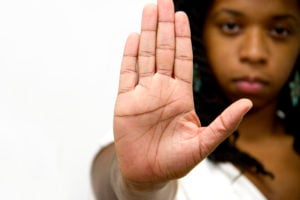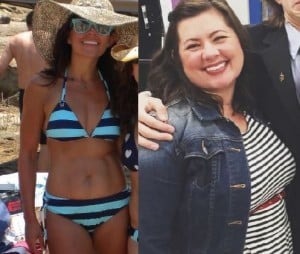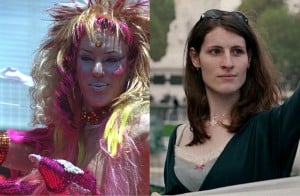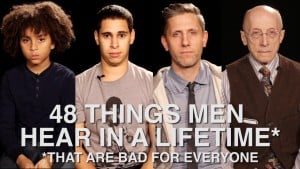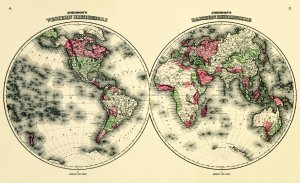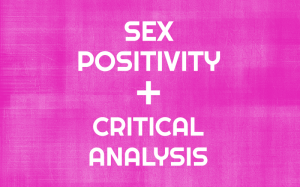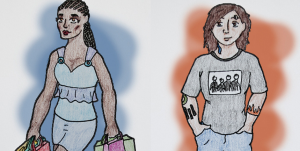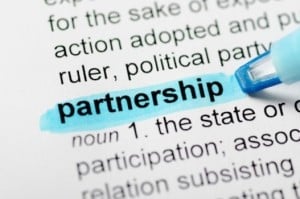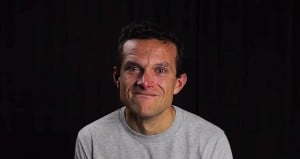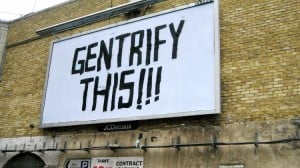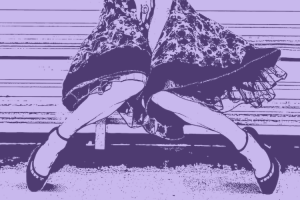
A person stares off to the side, their finger touching their lips, appearing thoughtful.
What does the “A” in “LGBTQIA+” stand for?
Ally, right?
Well, no. Despite what a lot of folks say, it doesn’t stand for ally – nor should it.
There are a number of issues with the acronym, and these issues are worth debating. For example, there are discussions about whether “intersex” should be included in the acronym. There’s also debate about whether a collection of letters is an inadequate label for a community with a great deal of diverse orientations and identities.
But for the purpose of this article alone, I want to focus on the idea that ‘ally’ is, or should be, a part of the LGBTQIA+ acronym.
Here are a few reasons why ally doesn’t belong in the LGBTQIA+ acronym.
1. Allies Aren’t Oppressed in the Same Way
An ally, by definition, is someone from a privileged group who commits to supporting a group they have privilege over.
In my experience, plenty of (well-intended) cisgender, heterosexual allies – especially those who are new to social justice – think their allyship means they don’t have privilege and can’t be called out on it.
But nope. Allies can and should be called out. Being an ally doesn’t erase privilege, in the same way supporting animal rights doesn’t mean you’re not a human, in the same way mourning someone doesn’t make you dead.
When we talk about the oppression the LGBTQIA+ community faces, it doesn’t include allies, because allies aren’t oppressed in the same way.
In that sense, adding ally to the acronym can dangerously imply that allies don’t have privilege while erasing the oppression the community faces.
2. Allyship Is an Action, Not an Identity
Being an ally is about what you do, not who you are. It’s an action and not an identity.
To support an oppressed group, allies need to actively demonstrate solidarity by calling their peers out or in, by listening to the oppressed group, and by holding space for us in times of tragedy, to name a few ways of showing support.
Being a part of the queer or trans community, on the other hand, is a matter of identity and not action. Each individual should get to label their orientation and identity as they want, if they want to do so.
But allyship is different. Someone doesn’t get to decide whether they’re an ally or not. Rather, people of the oppressed group get to decide whether they consider someone an ally, based on their actions.
The acronym represents identities, which ally is not. For this reason, lumping ‘ally’ in with the rest of the acronym isn’t only illogical – it also perpetuates the harmful idea that allyship is an identity and not an action.
3. Who Are They Allies To?
If I’m honest, a big reason why I get nervous about adding ally into the acronym is because I’m not sure with whom those allies are allying themselves.
If someone says they’re an LGBTQIA+ ally, what does it mean? Who are they really supporting?
The LGBTQIA+ community is a large group – which is one of the criticisms against the use of the acronym. Of course, everyone should show solidarity with people of all queer and trans identities. But I often find that people who say they’re “LGBTQIA+ allies” are actually just supportive of cisgender lesbian and gay folks.
I’ve often had my bisexuality scrutinized and erased by cis het folks who claim to be “LGBTQIA+ allies” simply because they have a handful of gay friends. Similarly, I’ve seen people who support lesbian, gay and bisexual people say transphobic things and erase asexual and aromantic people.
Putting ally into the LGBTQIA+ acronym is a big step to take when so few allies truly support us all. So when I hear people call for the inclusion of allies in the acronym, I have to ask: Who are they allies to?
Allyship in the context of such a diverse group is complicated. In many ways, we need to be allies to each other.
Monosexual lesbian and gay people need to be allies to polysexual people – that is, bisexual people, pansexual people, and others who are attracted to people of more than one gender.
Cis queers need to show solidarity with trans people.
Asexual people need to be supported by allosexual people. Similarly, aromantic people should be supported by alloromantic people.
And to get intersectional, white queer and trans people need to be allies to queer and trans people of color. Male queer and trans people need to support female and non-binary queer and trans folks. Abled queer and trans people need to support their disabled counterparts. You get the picture.
So, saying you’re an ally to LGBTQIA+ people is a bit broad – so broad that many people can use it to evade supporting some folks by saying they support others. In that light, I’m very wary of including ally in the acronym.
4. Including ‘Allies’ Often Erases Asexual and Aromantic People
In my experience, quite a few people assume that the “A” in the acronym stands for ally. What it’s usually meant to stand for is asexual or aromantic.
By assuming that “A” stands for ally and nothing else, we’re leaving out asexual and aromantic people – people who face a great deal of oppression.
This isn’t to say that one letter can’t stand for multiple identities. As I said, there are dozens of different words that queer folks use to describe themselves and their orientations, so it’s understandable if one letter stands for a few different identities.
But often, this misinterpretation of the acronym actively erases and harms asexual and aromantic people.
The erasure of asexual and aromantic people from the acronym is a symbol of a deeper issue. They’re not just erased in an acronym, but often erased within queer communities.
Asexual and aromantic people are underrepresented in the media. They’re harmed by the amatonormative assumption that we all need and want one central, sexual, romantic relationship with a spouse. There are plenty of myths around asexuality and aromanticism that harm and vilify those who identify as either or both.
In our communities, and in our acronym, we need to support asexual and aromantic people – not further that erasure. And we definitely shouldn’t erase them in order to include allies – a group of people with immense privilege.
5. Allies Shouldn’t Center Themselves
Whenever activists speak about the role of allies, we get a lot of pushback – especially when we ask allies to take a step back and check themselves.
Because of this common reaction, I want to reiterate an important truth: Allies shouldn’t center themselves.
As my colleague Jamie Utt writes,
“True solidarity means supporting the work of those you’re allying yourself to, not solely creating a platform for your own voice and work.
Sure, your privilege may afford you the spotlight sometimes, and there are times when you can use that spotlight to talk to people who share your identity… but whenever possible, allies turn that spotlight away from themselves and to the voices that are so often marginalized and ignored.”
So if you’re an ally who feels excluded by those of us who don’t want to include you in the acronym, think about why you feel that way. If it’s because you want to be centered in our community, remember that we’re meant to be supported by you – not vice versa.
***
As a queer person, I deeply appreciate the work many straight people do to show support towards my community. I’m grateful for those who push back against their heterosexual privilege, even when it’s tough.
Allies belong on the sidelines, cheering us on. They belong in our classrooms and workspaces, where they can use their privilege to promote our safety and access to equal opportunities. They belong on social media, educating others and signal-boosting our words. They belong in our homes, advocating for our acceptance.
They belong in a space where they can support us and our work.
But they don’t belong in our acronym.
[do_widget id=’text-101′]
Sian Ferguson is a Contributing Writer at Everyday Feminism and a queer, polyamorous, South African feminist who is currently studying towards a Bachelor of Arts majoring in English and Anthropology. Originally from Cape Town, she now studies at Rhodes University in Grahamstown, where she works as vice-chair of the Gender Action Project. She has been featured as a guest writer on websites such as Women24 and Foxy Box, while also writing for her personal blog. Follow her on Twitter @sianfergs. Read her articles here.
Search our 3000+ articles!
Read our articles about:
Our online racial justice training
Used by hundreds of universities, non-profits, and businesses.
Click to learn more





